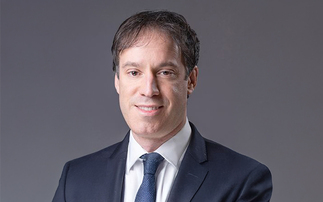Columbia Threadneedle Investments' Alasdair Ross explains why investment grade firms have been able to weather the Covid-19 storm thanks to their operational and financial flexibility.
Looking back over previous crises, was the global financial crisis a watershed moment for investment grade bonds and did it prepare the market for Covid-19?
It was a watershed moment for everyone, including for policymakers. With Covid-19 related lockdowns, governments and policymakers acted to prevent an economic shock turning into a financial crisis. To achieve this, programmes were designed in March this year to keep the credit channel open. As well as fiscal support packages we saw support through direct lending schemes, banking sector forbearance, and expanded purchases of corporate bonds. In this respect I think we could clearly see the lessons learned from 2008 and other moments of stress such as the eurozone sovereign crisis.
Investment grade markets benefited directly from corporate bond purchase programmes. 23rd March saw the US Federal Reserve announce it would directly buy corporate bonds for the first time, which followed the Bank of England and European Central Bank's expanded corporate quantitative easing (QE). As well as aiding large corporates in financing their operations, these programmes addressed the tighter financial conditions which were evident owing to highly elevated illiquidity premiums. In 2008, banking system deleverage amplified the shock. This time there's been forbearance on loss recognition, and on capital ratios.
Are central banks able to save all sectors?
What central bank action cannot do is turn unprofitable sectors or business models into profitable ones. So if you're an airline or in certain commercial real estate sub-sectors, central bank policies focused on elevated risk premia can't magically make those companies better. And so you will continue to get downgrades as earnings fall.
Central banks, in different environments, will also care about moral hazard. Just because you've got the central bank buying bonds, it doesn't mean spreads can't widen. That can give good information to the economy.
So it's not that central banks won't ever allow spreads to widen; they will. But we think that now with these tools, the deleverage unwind and elevated illiquidity premia that you saw in early-2009, and also that you saw in March this year before the Fed stepped in, are unlikely to be repeated in the near term.
How do corporate treasury teams typically respond to such crises and have they learned lessons from 2008?
When there is a crisis, access to debt capital is cut off and corporate treasury teams become rightly concerned. Then there is a period where companies will focus on balance sheet repair. This might include cutting capex and using cashflow to deleverage, or perhaps inorganic actions such as selling assets, cutting dividends and buybacks, or raising equity. The aim is to address that lack of access to credit and ensure ongoing financeability of the enterprise.
There's an economic effect of that to the credit cycle. As things free up again and credit flows, you tend to get subsequently increasing capex, debt levels and growth in an expansion phase. Coming into 2020, it had been one of the longest expansion phases we have seen, as ever loosening monetary policy had worked to extend the growth cycle. Because of that growth and low levels of interest rates, companies had been gearing up, so you had corporate leverage actually relatively high §going into the pandemic.
So perhaps you could argue the lessons of 2008 were less fresh in the mind of corporate management teams than they were on the policymaking side. Having said that, following the Covid-19 shock many IG corporates have acted to defend credit quality.
I think for IG, you're going to see a spike in leverage, but one of the characteristics of an IG company - by definition - is the mix of scale, operational and financial flexibility and discretionary cashflow that allows them to rebuild credit quality. We are likely to see husbanding of cashflows, building of cash balances, and ultimately debt paydown and deleverage. We'll go through the cycle again.
It's worth noting that in contrast to generally higher corporate leverage the banking sector had significantly better credit quality coming into the pandemic than into previous crises. Banks were better capitalised, more liquid, and more tightly regulated in 2020 than 2008. Asset quality will deteriorate as loans become non-performing but the sector has better ability to withstand those losses.











